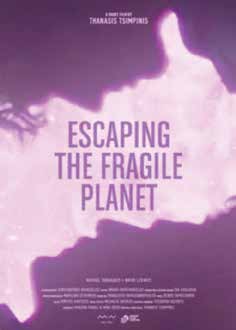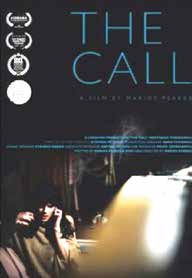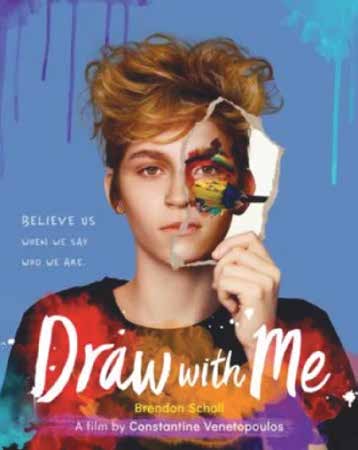By Gary M. Kramer
There are still a few more days to watch films screening at the 18th Annual San Francisco Greek Film Festival, which ends April 25. The more than two dozen features, documentaries, and shorts are available online for free with a reservation. (Some geoblocking applies.) This year’s program offers four short films featuring gay and trans characters. Here is a rundown of what to watch.

Escaping the Fragile Planet, written and directed by Thanasis Tsimpinis, opens with a disclaimer that the short was made in July 2019, and any similarities to COVID-19 are purely coincidental. It soon becomes clear why. Two young men (Michail Tabakakis and Nikos Lekakis) meet when one enters a record store where the other worked. Outside, there is a lethal pink mist, and with no one having long to live, the guys spent the rest of their time on Earth together. Tsimpinis’s short is a charming, if brief, romance. The characters talk about their fears, eat plenty of junk food, and bond over a magic trick, a dance, or a dare. And when they finally kiss, it is magical. The characters do wear masks, which gives Escaping the Fragile Planet an eerie sense of timeliness, but this poignant short is mostly enchanting.

The Call is a stunning 10-minute short filmed in a single take. A transgender woman (Nektarios Theodorou) is getting dressed to go out when she receives a phone call. Her brother informs her that their mother has died. This disturbing news sets off a heated discussion that reveals much about the main character’s estrangement from her family. Director and cowriter Marios Psaras lets viewers eavesdrop on this private moment, slowly inching his camera closer and closer to the film’s subject as the call progresses. The one-sided conversation is effective in allowing viewers to fill in the blanks as the woman makes sarcastic comments, or refuses to put on “normal clothes,” claiming that her closet is full of “normal clothes.” Her remarks suggest that her family still does not accept her true gender identity. The Call gives Theodorou a terrific showcase in the monologue, and the film delivers an emotionally powerful ending. This is an excellent short film, both in terms of style and content.

Madonna F64.0 is arguably the weakest of the queer shorts in the festival. Maria (Konstantina Lia) is recuperating at home after having a surgical procedure. Her sister (Penelope Tsilika) is grappling with a new baby. But Maria’s sister does not want her anywhere near her child. The tension that exists between the sisters is palpable, especially when they have a fight that gets physical when Maria is referred to as a male. However, despite a striking final shot, this short lacks real power.
Draw with Me is the sole documentary queer short. It is also the only one filmed in English, not Greek. This inspiring story is an American production by Greek filmmaker Constantine Venetopoulos about Brendon Scholl, a transgender teen. They [Brendon] are the nephew of Jennifer Lopez (who introduces the short), and their story is told through interviews with their family, including their mother, father, and aunt Lynda (Jennifer’s sister). The discussions are candid. Brendon’s mother initially has difficulty coming to terms with her child coming out as trans, and Brendon described their mom finding their binder, which prompted that conversation. Brendon also describes that, while their father loves and cares for Brendon, he was mostly silent on the topic of their gender identity.

Draw with Me shows how art provided an outlet for Brendon to express their feelings, as when they draw everyone’s eyes on them. The film also gets at the mental health challenges they face as a trans youth. During a particularly stressful time, Brendon attempted suicide, which the documentary explains is four times more common for LGBT youth than straight youth, and that a high proportion of the trans community attempts suicide before the age of 25.
But the film also has positive scenes of Lynda interacting with Brendon and talking about the rewards of moving through the world, where using gender pronouns and even being called by their preferred name can be a political act.
Draw with Me includes a clip featuring Jennifer Lopez and President Biden, and the program concludes with an additional segment featuring Lynda and Brendon one year later. Brendon has started taking testosterone (their voice is noticeably deeper) and they are in college and have a strong network of trans friends. They also talk about their activism for the Black Lives Matter movement during the era of COVID-19. It is gratifying to have the follow-up short to see how far Brendon—and their family—has come.